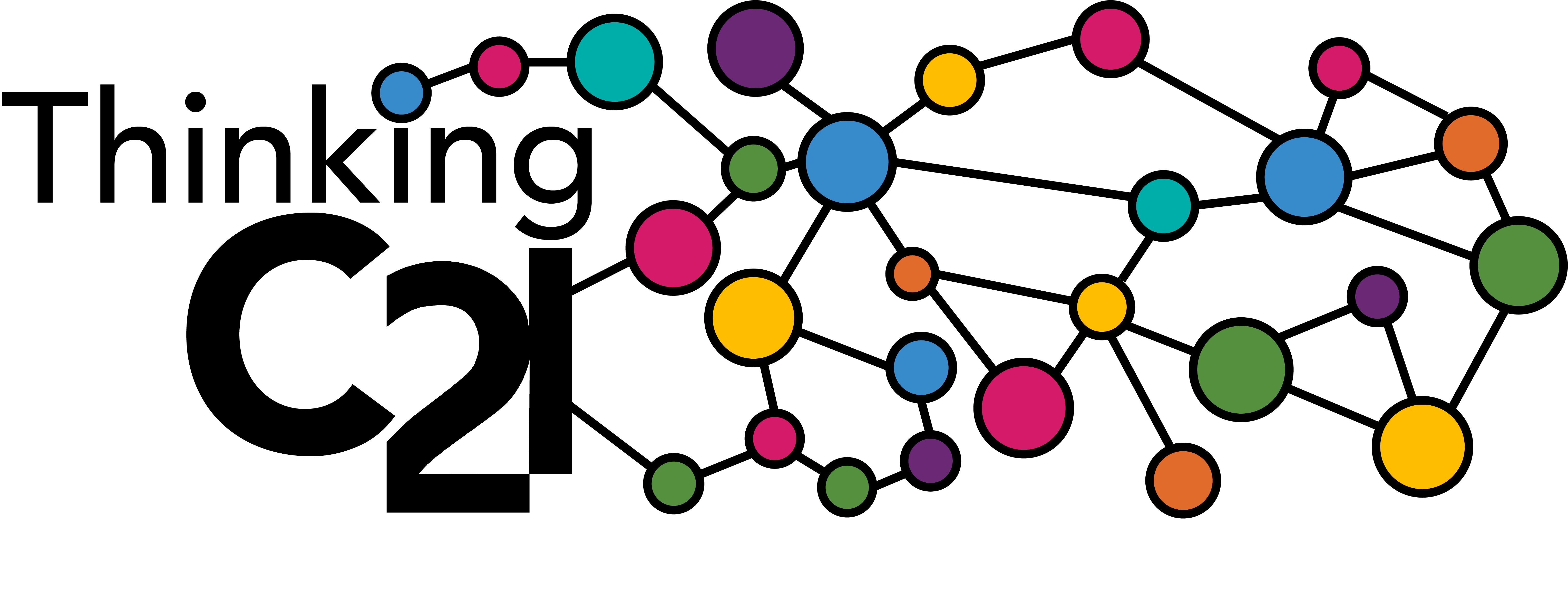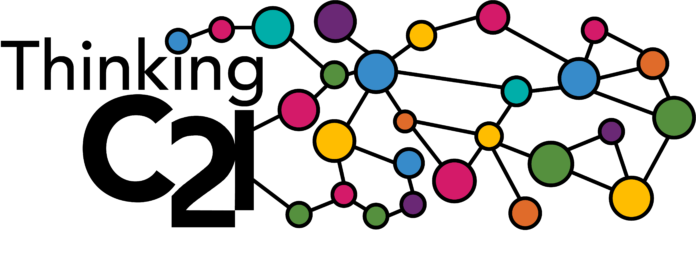By Jennifer Morales
Though the January 6, 2021, domestic coup attempt against the US government appeared shocking, in retrospect, it is easy to trace the buildup to that brutal effort. From the outgoing president’s relentless prefiguring of a “stolen” election, to the cacophony of conspiracy theories about election safety on the internet, to the evangelical mobilization of “spiritual warfare” to create a supernatural wall of protection around Trump’s White House, long-simmering political and social divisions boiled over on that day.
The coup erupted out of the fissures of the COVID-19 pandemic. The pandemic’s social, economic, and political strains had many people rethinking their career choices, life trajectories, and even relationships. The disruption occurring simultaneously on multiple planes left many yearning for a simpler life and the safeties of home. Pandemic restrictions on in-person gatherings brought people closer to home and many people returned, at least for a time, to food practices such as gardening, baking from scratch, and at-home meals with the family.
Sourdough blew up, so much so that it became fodder for late-night standup routines. During an extended conversation with actor Jake Gyllenhaal on “The Late Show,” host Stephen Colbert showed off the sourdough starter he was given by his niece. As the two got deep into the nitty gritty of making a levain, Colbert joked, “I have no idea what motivates anyone to watch television anymore, so it is possible this conversation right now is either getting Super Bowl ratings or people are scrambling for the remote right now to click over to anything else.”i
But Super Bowl-level attention to sourdough wasn’t the only breakout food trend. Other food practices also took off, signaling a mass movement toward making home comfortable. It became impossible to find canning jars; garden seeds and baking yeast were scarce; and there were widespread shortages of beans,ii flour, and other long-storage foods.iii At one point, searching for canning lids that would allow me to put up my summer produce, I found a dozen for sale on Amazon for fifty dollars—more than ten times their typical price. While the shortages were frustrating, overall, the return of US families to home cooking was heartwarming. Social media feeds were flush with photos of lovingly simmered meals and hand-decorated cookies. Cookbook sales, especially baking manuals, jumped markedly. According to NPD Bookscan, a publishing industry sales tracker, bread book sales increased by 200,000 between 2019 and 2020,iv and bread machine sales doubled year-over-year during the same period.v
But this return to home food ran parallel to another pandemic-fueled trend. With so much time at home, social media usage soared.vi And the same social media channels that allowed us to showcase our Pinterest-worthy birthday cakes were directing users into the very fascist, Christian nationalist, and white supremacist movements that were behind the J6 coup attempt. Thanks to social media algorithms driving traffic toward extremist movements, some users seeking advice on growing kale or looking for delicious crock pot recipes would, a few clicks down the way, find themselves exposed to anti-government conspiracies, culture-war memes, and hateful rhetoric against marginalized communities. I’ve often seen it described as the “crunchy-to-alt-right pipeline.”vii “Crunchy,” as in “crunchy granola” is a term meaning one who is interested in healthful, nontoxic, low-tech, and sometimes off-grid living—what some people might now call “neo-hippy.” “Alt-right” means holding extremist, right-wing beliefs, beliefs once situated outside of mainstream Republican Party platforms. While crunchy people might seek detachment from the hectic modern world full of fast food for health reasons, alt-right believers often detach from that same world in order to pursue independence from government.
One Redditor on the r/moderatelygranolamoms board, a discussion group for “almost hippies” who care about healthy food and environmental sustainability, outlined the pathways from crunchiness to right-wing extremism like thisviii:
I’ve definitely run into this. I see the AI on Tim Tok [sic], YouTube, Facebook run:
- Parenting
- Cloth Diapers
- Moderately Crunchy
- Crunchy
- Homesteading
- Far Right (anti-trans, traditional wife, racism, etc…). [sic]
There are a few pipelines though. Like there’s also:
- Gardening
- Zero Waste
- Homesteading
- Far Right
The isolation of the pandemic gave people plenty of time to go down these rabbit holes. I followed some of them, curious about the path from home baker or gardener to adherent of extreme and hateful ideologies. A particular fascination for me was one flagged by the Reddit user above: “traditional wife”—or “tradwife,” for short—a woman who cultivates strict gender roles in her marriage (to a man) and centers her life closely around the home. According to a November 2022 article in Insider Magazine, “The hashtag #tradwife has more than 96 million views, and thousands of users have incorporated some version of the term in their user name.”ix Tradwives hit the social media scene hard in the midst of the pandemic, at the same time that many people in the US were making this return to home-based food practices and simpler, more family-oriented lifestyles.
This convergence of trends gave these women abundant opportunities to shine, sharing their daily lives and home skills, particularly on visual-oriented social media platforms. Influencer tradwives like Amanda Gilbert (@lifewithaprons), Kaetlyn Anne (@girlincalico), and Kelly Havens Stickle (@kellyhavensohio)—all White, or White-presenting, women—regularly document their baking, cooking, preserving, foraging, and gardening routines on Instagram, YouTube, TikTok, and Pinterest, offering images of cozy and wholesome lifestyles their thousands of followers can aspire to emulate.


But all this homeyness gave me pause. Why? What’s so concerning about women celebrating family life and elevating the mundane tasks of the household to a form of joyful service to the greater good? My concern arises from the question: Whose greater good? History has shown that when a society begins to turn toward fascist or other authoritarian influences, leaders will reinforce gender roles and glorify the home and nuclear family structure as critical infrastructure to their ambitions.x A muscular patriarchy is posited as a cornerstone of national security. Diversity of thought becomes a threat and women who want other things—an advanced education, a career—are denigrated or punished. Outliers, such as queer families, get culled for not fitting the ideal. It’s an old story, one I was disturbed to see spreading across my Instagram feed.
I wasn’t imagining things: Many tradwives are drawn to various streams of authoritarianism, including Christian nationalism, white supremacy, and Trump-style fascism, and they know their place in those movements. In the week after the coup, tradwife influencers’ social media posts were filled with urgent calls to keep the focus on the home and the young soldiers they are raising up for future battles. As religion writer Aimee Chor observed in an article titled “Making Muffins and Troops for Spiritual Warfare,” xi tradwives driven by Christian nationalism understand that “what future Christians stand for—their identity—is cultivated at home. The mother nurtures and protects the purity of their hearts and minds. Insta-worthy pursuits like backyard chickens and handmade pies aren’t just hobbies, they’re the work of the kingdom.”xii
A return to the domestic sphere of kitchen and garden has its uses for white supremacist movements as well. In an interview, journalist Seyward Darby, author of Sisters in Hate: American Women and White Extremism, spoke about one of the subjects of her book, Ayla, noting that:
“… women like Ayla who really showcase their children are ready-made for the Instagram era in a way. It’s like, ‘Here’s what we made for dinner, here are my children raking the yard. Look at my blissful life.’ I think they’re daring critics of white nationalism to say something critical so they can retort: ‘Are you saying that my children are dangerous little Hitlers in the making?’ There’s an obvious pernicious PR slant to showing off how ‘normal’ they are.”xiii
In the same interview, Darby observed that,
“White-nationalist women are saying motherhood doesn’t have to be sullied by the muck of feminism, the workplace, and multiculturalism. You can just focus on being a cherished, hardworking, domestic goddess. In the white-nationalist movement, children, just like women, are kind of supposed to inspire this instinct to protect by all means necessary. It’s very much playing on this idea that they are the most vulnerable to social upheaval.”xiv
And from the need to protect the traditional (read, “White”) wives and children, it is a small leap to waving a Christian nationalist or White supremacist flag as you storm the Capitol building in defense of the old-fashioned America you thought you once knew. According to a 2016 study by psychologists Karen Stenner and Jonathan Haidt, “about a third of white responders across 29 liberal democracies proved to be authoritarian to some degree,”xv and these instincts can lie dormant until activated by a threat. Stenner explains that,
“… the classic conditions that typically activate and aggravate authoritarians—rendering them more racially, morally, and politically intolerant—tend to be perceived loss of respect for/confidence in/obedience to leaders, authorities and institutions, or perceived value conflict and loss of societal consensus/shared beliefs, and/or erosion of racial/cultural/group identity. This is sometimes expressed as a loss of ‘who we are’/’our way of life’.”xvi
It’s important for us who care about food and its cultural and social meanings to notice what the renewal of home-centered food practices is signaling to some. Sometimes a home-baked loaf of bread is just a home-baked loaf of bread—a delicious bit of sustenance or a meditative pastime. But sometimes it’s an attempt at reclamation of “’who we are’/’our way of life’,” a longing for home and nation to be more comprehensible to those who have lost some advantage in our increasingly diverse and tumultuous democracy.
i Stephen Colbert and Gyllenhaal first spoke about sourdough on a filmed-from-home episode of “The Late Show,” April 28, 2020. [https://www.cnn.com/2020/04/29/entertainment/stephen-colbert-jake-gyllenhaal-sourdough/index.html] and recapped their experiences in November 2022 [https://youtu.be/MqZdWOlflvw].
ii McCarron, M. (2020, March13). So we’re all hoarding beans now. Eater.
iii Kuta, S. (2021, May 13). These pandemic food shortages caught everyone by surprise. Here’s how they happened. https://www.foodandwine.com/news/pandemic-food-shortages. Food & Wine.
iv Kleiman, E. (2021, March 5). ‘Cool Beans’ and ‘Vegetable Kingdom’ are among the bestselling cookbooks in LA during pandemic. KCRW.com. https://www.kcrw.com/news/shows/press-play-with-madeleine-brand/reopening-schools-coronavirus-osha-film/cookbooks-sales-pandemic
v Kleiman, E. (2021, March 5). ‘Cool Beans’ and ‘Vegetable Kingdom’ are among the bestselling cookbooks in LA during pandemic. KCRW.com. https://www.kcrw.com/news/shows/press-play-with-madeleine-brand/reopening-schools-coronavirus-osha-film/cookbooks-sales-pandemic
vi Dixon, S. (2022, October 18). Social media use during COVID-19 worldwide – Statistics & Facts. Statista. https://www.statista.com/topics/7863/social-media-use-during-coronavirus-covid-19-worldwide/#dossierKeyfigures
vii See, for example, Belew, K. (2022, December 14). The crunchy-to-alt-right pipeline. The Atlantic. https://www.theatlantic.com/ideas/archive/2022/12/fringe-left-alt-right-share-beliefs-white-power-movement/672454/. I have also heard this expressed as the more alliterative “crunchy-to-crazy pipeline”.
viii u/Paper _ _. (2022, December 18). Reply on Reddit board r/moderatelygranolamoms to u/strugglecuddleclub’s question “Thoughts on crunchy to far right pipeline?”.
ix Froio, N. (2022, November 7). ‘Trad wives’ are using social media to romanticize a return to ‘traditional values’ as more and more women face post-COVID work/life balance burnout. Insider. https://www.insider.com/tiktoks-trad-wives-are-pushing-a-conservative-agenda-for-women-2022-11
x See, for example, “Life in Fascist Rome,” about Mussolini’s pageants and awards programs for heterosexual couples that produced many children. https://romehistorymu.wixsite.com/romehistorymu/life-in-rome
xi See examples compiled by Chor in “Making muffins and troops for God’s army: The godly women of Instagram.” Religion Dispatches. https://religiondispatches.org/making-muffins-and-troops-for-gods-army-the-godly-women-of-instagram/
xii Chor, A. (2021, January 25). “Making muffins and troops for God’s army: The godly women of Instagram.” Religion Dispatches. https://religiondispatches.org/making-muffins-and-troops-for-gods-army-the-godly-women-of-instagram/
xiii Chapin, A. (2020, July 31). Sisters in hate: How white nationalists weaponize motherhood. The Cut. https://www.thecut.com/2020/07/sisters-in-hate-how-white-nationalists-weaponize-motherhood.html
xiv Chapin, A. (2020, July 31). Sisters in hate: How white nationalists weaponize motherhood. The Cut. https://www.thecut.com/2020/07/sisters-in-hate-how-white-nationalists-weaponize-motherhood.html
xv Jacobs, T. (2018, March 26). Authoritarianism: The terrifying trait that Trump triggers. Pacific Standard. https://psmag.com/news/authoritarianism-the-terrifying-trait-that-trump-triggers
xvi Jacobs, T. (2018, March 26). Authoritarianism: The terrifying trait that Trump triggers. Pacific Standard. https://psmag.com/news/authoritarianism-the-terrifying-trait-that-trump-triggers
Jennifer Morales [any human pronoun is fine] is a queer Latinx writer, devoted cook, and dogged gardener based in rural Wisconsin. Their short story collection, Meet Me Halfway: Milwaukee Stories, was Wisconsin Center for the Book’s 2016 “Book of the Year.” www.moraleswrites.com





